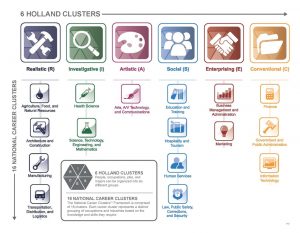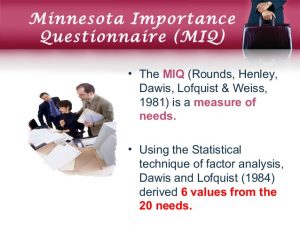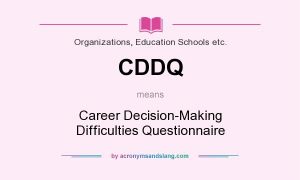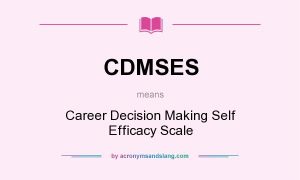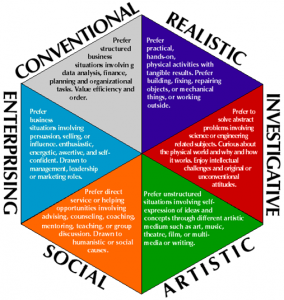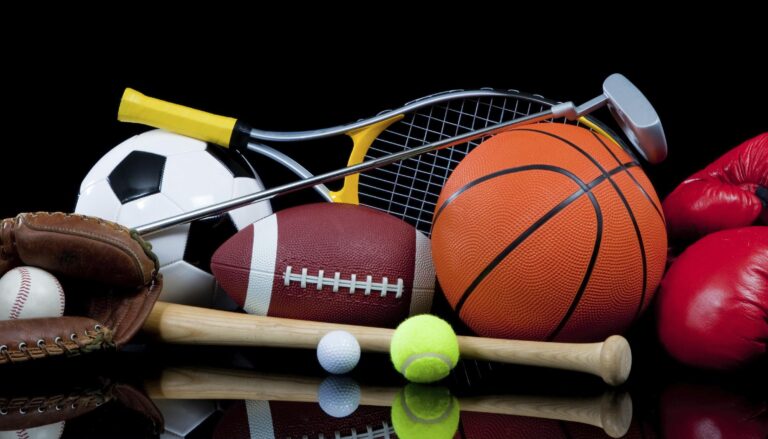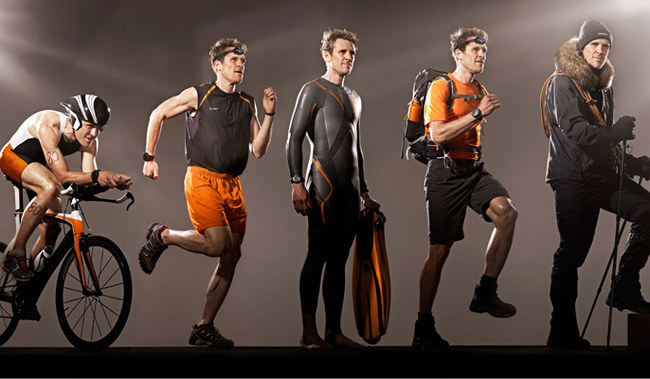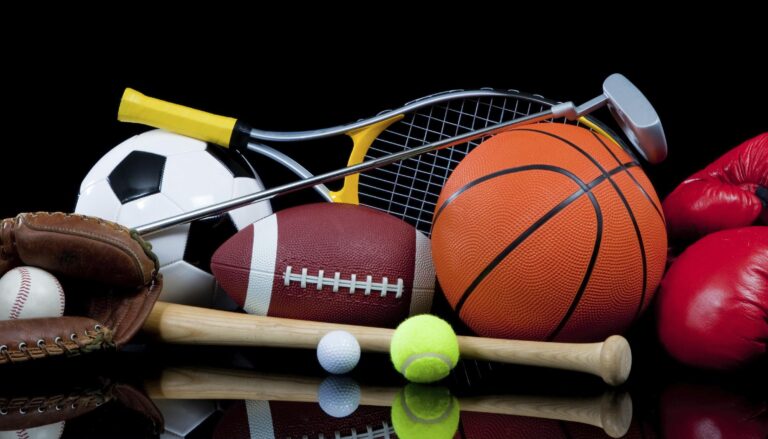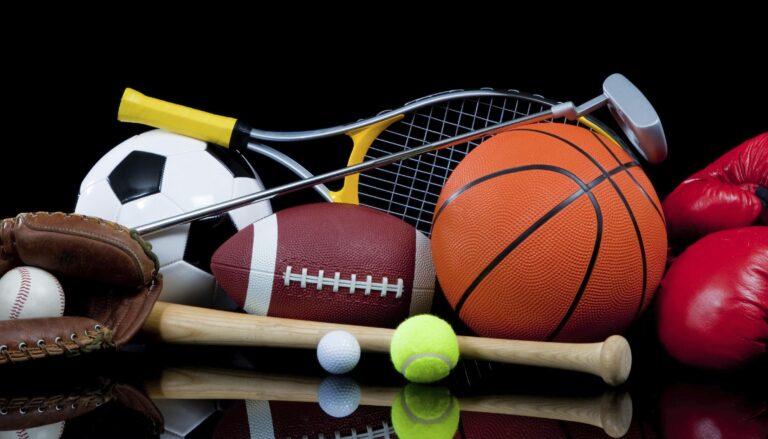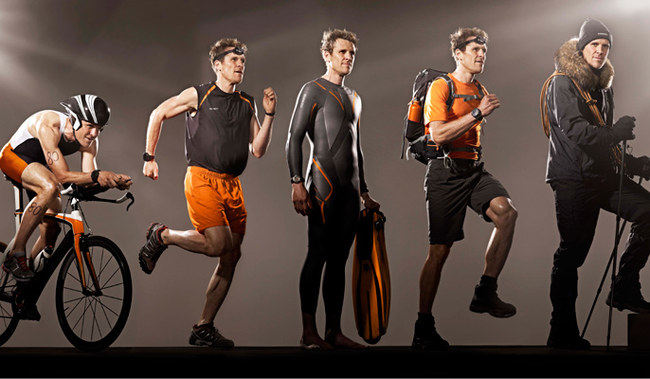National Survey of Student Engagement
The National Survey of Student Engagement (NSSE) obtains, on an annual basis, information from tens of thousands of students at...
Read More
My Vocational Situation Scale
The My Vocational Situation scale (MVS) is a self-report screening tool developed for use with high school, college, and adult career...
Read More
Minnesota Importance Questionnaire
The Minnesota Importance Questionnaire (MIQ) is a measure of work needs and work values. Work needs are a person’s requirements...
Read More
Employee Aptitude Survey
The Employee Aptitude Survey (EAS), used for more than 50 years in selection and career counseling, was developed to yield...
Read More
College Student Experiences Questionnaire
The College Student Experiences Questionnaire (CSEQ) is a versatile tool that assesses the quality of effort college students expend in...
Read More
Career Style Interview
The career style interview (CSI) consists of six questions and is the primary means of assessment for those interested in...
Read More
Career Planning Survey
The Career Planning Survey is a paper-based career assessment system designed to help students in Grades 8 through 10 identify...
Read More
Career Decision-Making Difficulties Questionnaire
Dealing with career indecision has long been a focus of theory and research, and helping clients to overcome their difficulties...
Read More
Career Decision Self-Efficacy Scale
The Career Decision Self-Efficacy Scale (CDSE) was developed by Karen Taylor and Nancy Betz in order to apply Albert Bandura’s...
Read More
Strong Interest Inventory
The Strong Interest Inventory, published by CPP, Inc., and commonly referred to as the Strong, is one of the most...
Read More
Mbuti Pygmies
The Mbuti Pygmies, referred to as BaMbuti or Bambuti, are an ancient group of hunters and gatherers living deep in...
Read More
Theodore D. McCown
Theodore Doney McCown, an American biological (physical) anthropologist, is best known for three major contributions he made to his science....
Read More
Marshall McLuhan
Herbert Marshall McLuhan was born on July 21, 1911. The proud parents sent out announcements heralding the birth with the...
Read More
Margaret Mead
Margaret Mead, the most prominent and recognized anthropologist of the 20th century, had a profound influence on anthropology and feminism....
Read More
Medical Genetics
Medical genetics is the study of the interrelationship between human biological variation, including both genetic and environmental sources, and the...
Read More
Medicine Man
The term medicine man is derived from (a) the French Jesuit observance of certain individuals with healing roles among Canadian...
Read More
Meganthropus
In 1949, based on the large size of a single mandible, G. H. R. von Koenigswald named a new hominid...
Read More
Hugh Mehan
A sociologist by training, Hugh (“Bud”) Mehan has made important contributions to the anthropology of schooling, particularly with regard to...
Read More
Leniency Bias
It is well established that if a verdict option is favored by a substantial (e.g., two-thirds) majority of jurors prior...
Read More
Lineup Fillers
Lineup fillers prevent unreliable witnesses from guessing the identity of the police suspect and should allow for a fair recognition...
Read More
Lineup Size and Bias
A lineup is constructed by placing a person suspected of committing a crime (the suspect) among a collection of innocent...
Read More
Litigation Stress
Litigation stress is best understood as consisting of negative physical and psychological reactions to being involved in a legal action....
Read More
MacArthur Competence Assessment Tool for Clinical Research (MacCAT-CR)
The MacArthur Competence Assessment Tool for Clinical Research (MacCAT-CR) provides a semi-structured assessment format for evaluating abilities related to the...
Read More
MacArthur Competence Assessment Tool for Criminal Adjudication (MacCAT-CA)
Mental health professionals often conduct evaluations to assist courts in determining whether a criminal defendant is competent to participate in...
Read More
MacArthur Competence Assessment Tool for Treatment (MacCAT-T)
The MacArthur Competence Assessment Tool for Treatment (MacCAT-T) is an instrument designed to assess decision-making capacity. Designed as part of...
Read More
MacArthur Violence Risk Assessment Study
Violence risk assessment is now widely assumed by policy makers and the public to be a core skill of the...
Read More
Malingering Probability Scale (MPS)
The Malingering Probability Scale (MPS) was developed in the mid-1990s as a self-report instrument to estimate the probability of malingering,...
Read More
Mandated Community Treatment
Treating people with a mental disorder without their consent always has been the defining human rights issue in mental health...
Read More
Sport Psychiatry ⋆ Sports Psychology ⋆ Lifestyle
Like sport psychology (SP), the field of sport psychiatry may involve utilization of psychological approaches to enhance athletic performance. However, ...
Read More
Sports Psychology History ⋆ Sports Psychology ⋆ Lifestyle
Eras in the History of Sport Psychology The history of sport psychology has often been organized into six key eras ...
Read More
Team Building ⋆ Sports Psychology ⋆ Lifestyle
The fact that groups can influence outcomes important to both the individual and the group has been recognized for decades....
Read More
What is Cohesion? ⋆ Sports Psychology ⋆ Lifestyle
Cohesion represents the degree to which task and social bonds exist among group members, as well as the strength of...
Read More
Collective Efficacy ⋆ Sports Psychology ⋆ Lifestyle
Albert Bandura defined collective efficacy (CE) as a group’s shared belief in its conjoint capabilities to organize and execute the...
Read More
Competition in Sports ⋆ Sports Psychology ⋆ Lifestyle
Competition is often described as a contest, or a process of contesting, between two or more parties (organisms, individuals, or...
Read More
Conflict in Sports ⋆ Sports Psychology ⋆ Lifestyle
In 1954, Muzafer Sherif, O. J. Harvey, B. Jack White, William R. Hood, and Carolyn W. Sherif undertook a project...
Read More
Conformity in Sports ⋆ Sports Psychology ⋆ Lifestyle
Conformity refers to the process of matching one’s actions or beliefs with the behavior and norms of those around us....
Read More
Group Characteristics ⋆ Sports Psychology ⋆ Lifestyle
A group is defined as a social aggregate of two or more people that involves mutual awareness, interaction, and interdependence ...
Read More
Group Formation ⋆ Sports Psychology ⋆ Lifestyle
Why do groups form and how do groups develop? In this entry, different perspectives on group development are examined. There ...
Read More
Self-Presentation
In 1959, sociologist Erving Goffman published The presentation of self in everyday life. The heuristic value of the concepts he...
Read More
Sibling Interaction
Sibling relationships can be important and influential throughout the lifespan. During childhood, siblings can influence both personality development and behavior....
Read More
Social Exchange
Human survival is based on the ability to exchange resources, and as a result of evolution, the human brain has...
Read More
Social Interaction Structure
How someone behaves verbally, physically, or through their presence in a social context influences the behavior of other people in...
Read More
Social Support in Interpersonal Communication
Social support is a diverse, multidisciplinary area of study that addresses the question: why do people who are involved in...
Read More
Uncertainty Management
Given that the experience of uncertainty, in some form, is a part of nearly every interaction, it should come as...
Read More
Uncertainty Reduction Theory
Uncertainty reduction theory explains both how interpersonal communication is affected by a lack of knowledge and how people use communication...
Read More
Verbal Aggressiveness
Verbal aggressiveness and argumentativeness are distinct but closely related concepts that apply to conflictual interpersonal interaction. Verbal aggressiveness is the...
Read More
Advocacy Journalism
The term advocacy journalism describes the use of journalism techniques to promote a specific political or social cause. The term...
Read More
Alternative Journalism
Alternative journalism is a fluid concept, often casually attributed to a wide array of media practices unified only by being...
Read More

